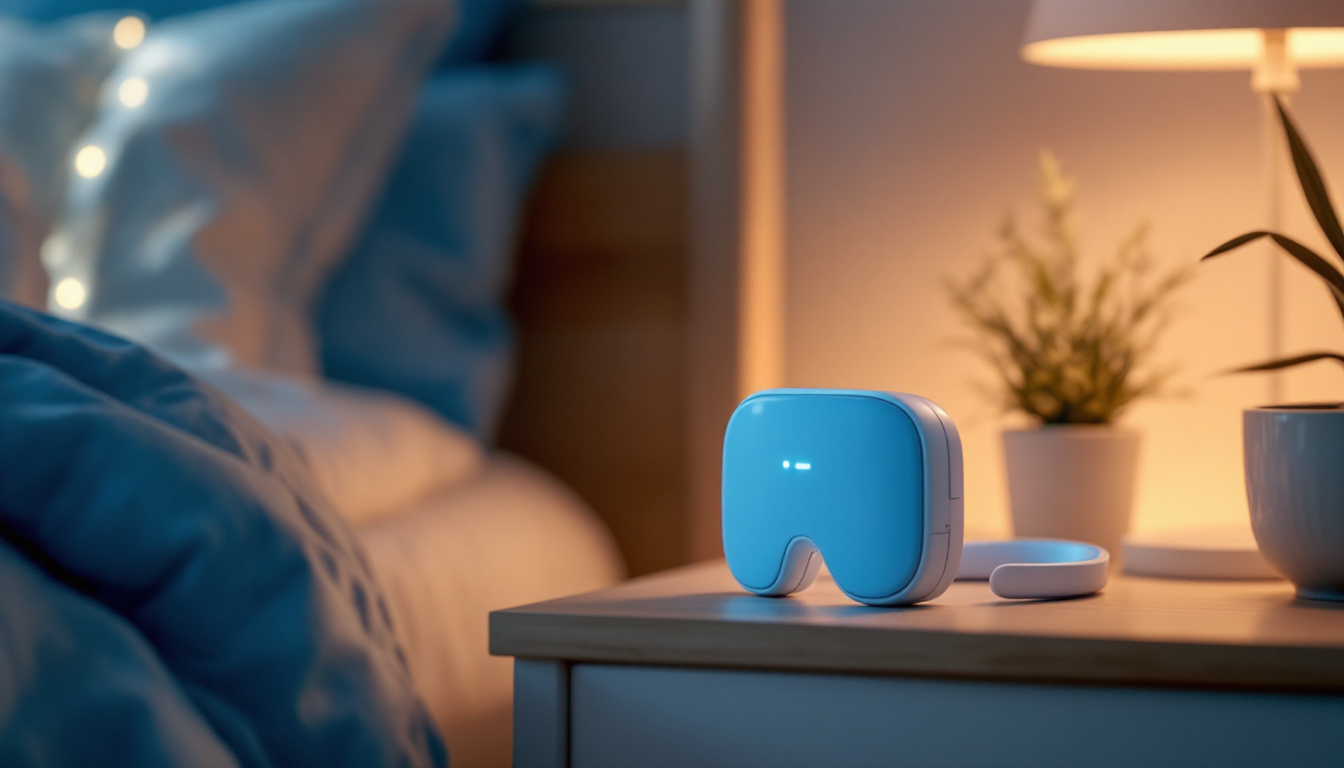Understanding Teeth Grinding and Its Consequences
Teeth grinding, clinically known as bruxism, is a common condition that affects millions of individuals worldwide. Often occurring during sleep, this involuntary action can lead to a range of dental and health issues. Symptoms may include jaw pain, headaches, and even damage to the teeth themselves. Understanding the implications of bruxism is crucial for anyone experiencing these symptoms.
Many individuals are unaware that they grind their teeth, which can exacerbate the problem over time. The stress of daily life, coupled with factors such as misaligned teeth or sleep disorders, can contribute to this condition. As a result, finding an effective solution, such as a sleeping mouth guard, becomes essential for both short-term relief and long-term dental health. Additionally, lifestyle changes such as stress management techniques, including mindfulness and relaxation exercises, can significantly reduce the frequency and intensity of bruxism episodes. Incorporating practices like yoga or meditation into your daily routine may help alleviate the underlying stress that often triggers teeth grinding.
Common Symptoms of Bruxism
Identifying the symptoms of bruxism is the first step towards effective management. Common signs include:
- Jaw pain or soreness, particularly upon waking
- Frequent headaches, especially in the morning
- Worn-down or chipped teeth
- Increased tooth sensitivity
- Disrupted sleep patterns
If you recognize these symptoms, it may be time to consider a mouth guard as part of your nightly routine. Beyond the physical symptoms, bruxism can also have psychological effects, such as increased anxiety and irritability, which can create a vicious cycle of stress and grinding. It’s important to address both the physical and emotional aspects of this condition. Consulting with a dental professional can provide insights into personalized treatment options, including behavioral therapies, dental adjustments, or even medication to help manage the symptoms effectively.
What Is a Sleeping Mouth Guard?
A sleeping mouth guard, also known as a night guard, is a dental appliance designed to protect the teeth and jaw from the harmful effects of grinding. These guards are typically made from durable materials that absorb the pressure of grinding, thereby preventing damage to the teeth and alleviating discomfort. Many individuals who suffer from bruxism, the medical term for teeth grinding, find that using a night guard significantly improves their quality of sleep and overall oral health.
Night guards are available in various styles and materials, catering to different levels of grinding severity. Custom-fitted options provide the best comfort and protection, ensuring a good night’s sleep without the worry of waking up with pain or damage. In addition to protecting teeth, these guards can also help reduce headaches and jaw pain that often accompany bruxism, making them an essential tool for many people.
Types of Night Guards
When selecting a night guard, it's important to understand the different types available:
- Soft Night Guards: Ideal for light grinders, these guards are made from flexible materials that provide comfort while still offering protection. They are often recommended for those who experience occasional grinding and prefer a less intrusive option.
- Hard Night Guards: Suitable for heavy grinders, these guards are more rigid and provide maximum protection against severe grinding. They are typically recommended for individuals who have experienced significant wear on their teeth or who have been diagnosed with severe bruxism.
- Hybrid Night Guards: Combining the features of both soft and hard guards, these offer a soft interior for comfort and a hard exterior for protection, making them suitable for moderate to severe grinding. This type of guard is particularly beneficial for those who want the best of both worlds, providing comfort without sacrificing protection.
Choosing the right night guard can also depend on personal preferences and lifestyle factors. For example, some individuals may prefer a thinner guard that is less noticeable while sleeping, while others may prioritize durability and opt for a thicker design. Additionally, factors such as ease of cleaning and maintenance can influence the decision, as some materials may require more care than others. Consulting with a dental professional can help individuals make an informed choice that best suits their needs and habits.
Benefits of Using a Night Guard
Investing in a night guard can yield significant benefits for individuals suffering from bruxism. Here are some of the key advantages:

Protection Against Tooth Damage
One of the primary functions of a night guard is to protect the teeth from the wear and tear caused by grinding. Without a guard, the constant friction can lead to chipped, cracked, or worn-down teeth, resulting in costly dental repairs. This protective barrier not only safeguards the enamel but also helps maintain the integrity of dental work, such as crowns and fillings, which can be compromised by excessive grinding. Regular use of a night guard can ultimately save individuals from the discomfort and financial burden associated with extensive dental procedures.
Reduction of Jaw Pain and Discomfort
Many individuals experience jaw pain due to the strain of grinding. A night guard helps to alleviate this pressure, providing relief and allowing for a more restful sleep. Over time, this can lead to improved jaw health and reduced discomfort. Additionally, the use of a night guard can help prevent the development of temporomandibular joint (TMJ) disorders, which can cause chronic pain and dysfunction in the jaw. By creating a cushion between the upper and lower teeth, night guards can promote better alignment and reduce the risk of long-term jaw issues.
Improved Sleep Quality
By reducing the physical stress associated with grinding, night guards can contribute to better sleep quality. Individuals often report feeling more rested and less fatigued in the morning after using a night guard. This improvement in sleep can have a ripple effect on overall health, enhancing mood, cognitive function, and even physical performance during the day. Furthermore, many users find that the reduction in nighttime disturbances allows them to enter deeper sleep cycles, which are crucial for restorative processes in the body. As a result, incorporating a night guard into one’s nightly routine can lead to a more energized and productive day ahead.
Enhanced Oral Health
In addition to protecting against tooth damage and alleviating jaw pain, night guards can also contribute to overall oral health. By preventing teeth grinding, they help to reduce the risk of gum recession and other periodontal issues that can arise from excessive pressure on the gums. Furthermore, a night guard can create a barrier that minimizes the risk of developing oral infections, as it keeps the environment in the mouth stable and less prone to irritation. Regular dental check-ups combined with the use of a night guard can lead to a healthier mouth and a more confident smile.
Choosing the Right Night Guard
With numerous options available, selecting the right night guard can feel overwhelming. Here are some factors to consider when making your choice:

Comfort and Fit
Comfort is paramount when it comes to a night guard. A poorly fitting guard can cause discomfort, leading to further issues. Custom-fitted options are often the best choice, as they are tailored to the individual's dental structure, ensuring a snug and comfortable fit.
Material Quality
The materials used in the construction of a night guard can significantly impact its effectiveness and durability. Look for options made from medical-grade, BPA-free materials that are designed to withstand the pressures of grinding without compromising safety.
Affordability
Traditional dental night guards can be prohibitively expensive, often costing between $400 to $800. However, brands like Remi offer custom-fitted night guards at a fraction of the price, typically around $129. This affordability allows more individuals to access the protection they need without breaking the bank.
How to Care for Your Night Guard
Proper care and maintenance of your night guard are essential for ensuring its longevity and effectiveness. Here are some tips on how to care for your appliance:
Cleaning Your Night Guard
Regular cleaning is crucial to prevent the buildup of bacteria and plaque on your night guard. It is recommended to rinse the guard with warm water after each use and brush it gently with a toothbrush (without toothpaste) to remove any debris.
For deeper cleaning, consider using an ultrasonic cleaner, which utilizes high-frequency sound waves to dislodge bacteria and debris without the need for harsh chemicals. This method is not only effective but also helps maintain the integrity of the guard.
Storing Your Night Guard
When not in use, store your night guard in a protective case to prevent damage and contamination. Ensure that the case is clean and dry before placing the guard inside.
Regular Inspections
Periodically check your night guard for signs of wear or damage. If you notice any cracks, tears, or significant wear, it may be time to replace it to ensure optimal protection.
Additional Solutions for Bruxism
While night guards are an effective solution for managing bruxism, there are additional strategies that can help alleviate the condition:

Stress Management Techniques
Since stress is a common trigger for bruxism, incorporating stress management techniques into your daily routine can be beneficial. Practices such as meditation, yoga, and deep-breathing exercises can help reduce anxiety and tension, potentially decreasing the frequency and severity of grinding.
Consulting with a Dentist
Regular dental check-ups are essential for individuals experiencing bruxism. A dentist can provide personalized recommendations and monitor any changes in dental health. They may also suggest additional treatments, such as orthodontic adjustments or physical therapy, depending on the severity of the condition.
Exploring Alternative Treatments
In some cases, alternative treatments such as biofeedback therapy or medications may be recommended to help manage bruxism. These options should be discussed with a healthcare professional to determine the best course of action.
Conclusion
Choosing the best sleeping mouth guard for grinding teeth is a crucial step towards protecting dental health and improving overall quality of life. With various options available, it's essential to consider factors such as comfort, fit, material quality, and affordability when making your selection.
Investing in a high-quality night guard not only protects against the damaging effects of bruxism but also contributes to better sleep and reduced discomfort. By incorporating good care practices and exploring additional solutions, individuals can effectively manage their bruxism and enjoy a healthier, more restful life.
For those seeking an effective and affordable solution, brands like Remi offer custom-fitted night guards that combine quality with convenience, making it easier than ever to take control of your dental health.
Ready to take the next step towards a restful night's sleep and safeguarding your dental health? Look no further than Remi's custom-fitted night guards. Our night guards are crafted in the USA from dental-grade, BPA-free plastic, offering a perfect fit and exceptional comfort. With Remi, you can enjoy up to 80% savings compared to traditional options, and with The Remi Club subscription, you'll receive a new set every six months, ensuring continuous protection. Say goodbye to teeth grinding damage and hello to a healthier smile for just $129 to start and $49 per replacement set. Plus, with our 30-day satisfaction guarantee, you can shop with confidence. Don't wait any longer to protect your teeth—Shop Now and experience the Remi difference.













